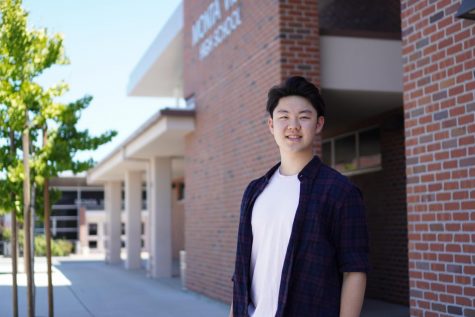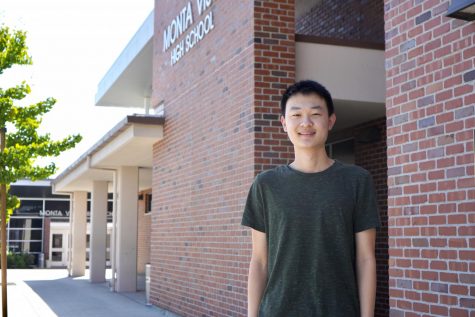Bridging the gap between generations
Understanding generational differences between child and parent can solve conflicts
March 13, 2019
For many students at MVHS, protests over how hard parents push us academically are commonplace. Daily conversations with friends are littered with subtle about our parents. We bemoan their constant nagging about our grades, extracurriculars or the amount of time we spend on our phones.
But this isn’t a problem confined to only MVHS or Silicon Valley — stress has become one of the most prevalent problems that plagues teens in the United States. In a study of over 35,000 American teenagers, the social network After School found that 44.88 percent of teenagers feel constant levels of stress and 13.46 percent are most stressed due to their parents, ranking only behind relationships (27.22 percent) and teachers (24.55 percent). At MVHS, where many parents strongly value education, it’s likely that these figures are even higher.
Though students frequently complain about how much of our stress stems from our parents, we rarely consider their motives. The reasoning behind our parents’ seemingly harsh standards remains unknown to many of us, as are the drastically different conditions they grew up in that drive their beliefs apart from ours.
The social and technological changes of the 21st Century created a higher standard of living for us in comparison to what our parents experienced. Many of them, as immigrants forced to adapt to a new country and culture, worked hard and made countless sacrifices to succeed in Silicon Valley and provide us with easier lives.
Contrastingly, we have access to the technology and opportunities they lacked when growing up. Furthermore, few of us ever faced the difficulties of learning a new language or struggling to fit into a different culture — in fact, we are conveniently born into the circumstances that we will likely live in for the rest of our lives, eliminating the need to adapt. We live comfortable lives as a result of our parents’ hard work, but at the same time we lack first-hand learning experiences and lessons that our parents gained through their hardships.
We should recognize and appreciate our parents’ sacrifices for us; what we might feel is hostile or inconsiderate is often what they truly believe is right for us. Many of our parents have overcome struggles far worse than the ones we face, and even though their experiences don’t give them the right to tell us what to do in every scenario, the lessons they provide us aren’t unjustified.
For sophomore Zoe Wang and her father Kevin Wang, finding the balance between excessive academic pressure and independent thought is a perpetual struggle. Having grown up in a strict Chinese household, Kevin experienced difficulties created by constant academic pressure from his parents.
“My parents had very high standards, like a lot of Asian parents: high standards of excellence, B’s [were] not acceptable, very results-driven,” Kevin said. “And I’m thankful for that because to achieve their standards, I had to work my tail off. They definitely had a huge influence in making sure that [I] worked really hard.”
While Kevin believes that constant reinforcement of high academic standards is acceptable, he also focuses on character traits such as grit and perseverance, hoping to instill them in his children rather than being absorbed solely on the letters they bring home on their report card.
“[Sometimes, Zoe] will say, ‘Hey, the most important thing to you is academics,’ and that tells me I’m doing something wrong because that’s not what we’ve communicated in our values and our mission as a family,” Kevin said. “That’s when we have to step back and re-calibrate.”
Wang’s family is an example of a cohesive relationship between child and parent that we should all strive to model. By understanding each other’s viewpoints, Kevin and Zoe can resolve conflicts, and the generational differences that would traditionally separate parents and children actually become beneficial for them by the open discourse of new ideas.
Their relationship extends to a lesson for everyone: when we don’t agree with our parents’ perspectives on certain issues, we should consider them through a different lens. Their ideas are rarely flat-out wrong; instead, they sometimes think from a different viewpoint which we should make an effort to acknowledge. If we can dismiss any preconceived notions that we may hold towards their beliefs and instead welcome them positively, we can also learn from new viewpoints that would be otherwise unknown to us.



















